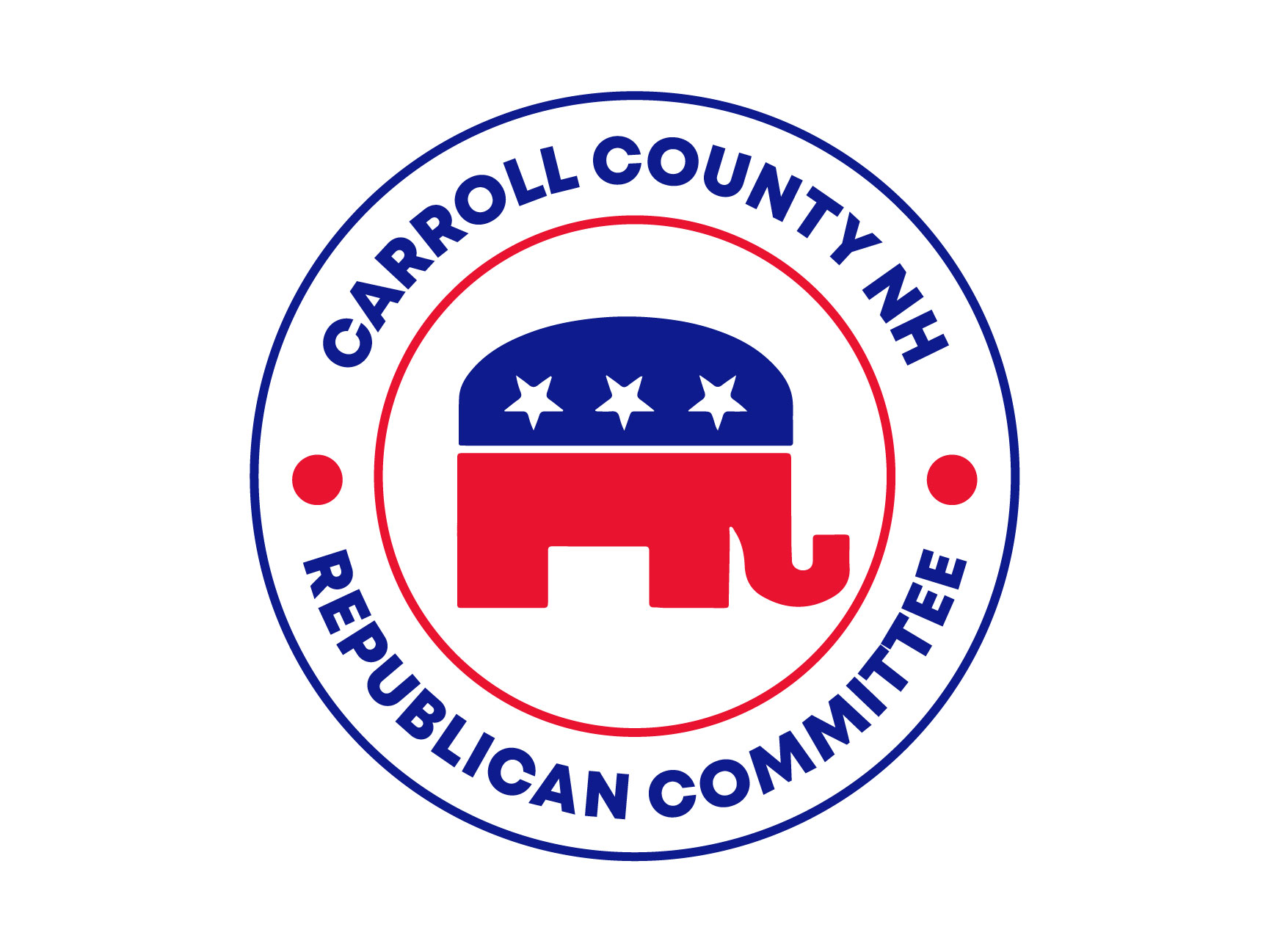A School Choice option is on the table in the State House. Please help us pass it.
Why do Carroll and Hillsborough County Republican Committees support HB 20?
1. It is consistent with the Republican platform
2. Leadership supports the bill
3. The Governor will sign the Bbill into law if it reaches his desk
Why should everyone support this bill?
1. School Choice helps competition
2. Competition drives innovation, responsiveness and reduces costs of public schools
3. One size does not fit all – This helps students learn the way they learn best
4. Help those struggling financially to provide the best educational option for their children
What should I do?
1. Contact your State Representative and ask him/her to support the bill. Link below to find e-mail & phone number: http://www.gencourt.state.nh.us/house/members/default.aspx
2. Write a letter to the editor and submit through this web page link:
Letters to the Editor: https://secure.nh.gop/lte
Or you can use our links here: Newspapers
What are Education Freedom Accounts and why do we need them?
Each child is unique, and all children deserve a menu of options—programs, services, courses, and schools that are designed to address their interests and aptitudes. The goal is not to standardize children: it is to allow every kid to discover, develop, and apply their talents to realize their full potential.
Education Freedom Accounts (EFAs) combine education opportunity and student-centered funding to enable families to create a truly customized education around their individual needs. Instead of sending money to a predetermined school, EFAs are funded using a child’s share of state education funding and can be directed to the schools, courses, programs, and services of a family’s choice. In many ways, EFAs are a form of school finance reform, providing funding portability to families for a variety of individualized uses.
Some Key Points:
1. Every child should have equal access to a publicly funded education.
The public tax dollars raised for education should enable every individual student to attend the school or learning environment that meets their needs and interests. This will enable an education system that is responsive to student needs, not the needs of the institutions created to serve them.
2. Children learn everywhere, and funds should support learning wherever it happens. Education is more than just a choice between School A and School B. Education is a continuous process of discovering passions and talents, developing skills to improve those talents, and preparing oneself to find purpose and meaning by serving others through doing what you love. Thus, public dollars provided to families should enable them to create an education individualized to the needs of their child. This includes access to traditional schools, microschools, learning pods, hybrid homeschools, and all of the other forms of education that families are discovering.
3. Let’s trust families, not bureaucrats, to make the best decisions for their kids.
The idea of giving families control of funding allocated to them is obvious in other sectors, but not always in K-12 education. Historically, when the government determines families need a particular resource (devices, books, tutoring), they send funds to schools who serve as middlemen in the procurement and distribution of those resources. A fundamental principle of funding every kid is the restoration of family agency in education decision making. When families control decision making, they hold real accountability—educators, schools, and providers are then responsive directly to them.
4. Educators and parents should be empowered to create unique learning environments that fit student needs. In the current K-12 funding structure, educators lack autonomy and families are unable to explore unconventional education models. The root of the problem is a focus on the system instead of the families and educators who are actually engaged in the learning process. Shifting to student centered funding would give families the financial authority to opt into learning environments that meet their needs while empowering educators to create learning environments that energize their passion for teaching. This way families can willingly seek out mutually beneficial arrangements where everyone in the room is there because they want to be.
5. This pandemic has emphasized that students and families need more options than ever before and HB 20 will help them access an education that works for them.
(Points borrowed from AFP)
